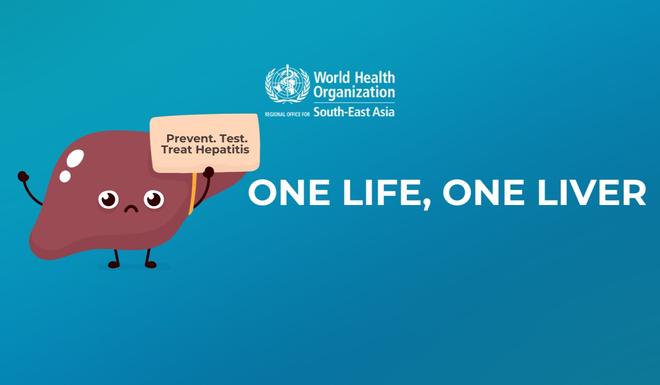Published 15:39 IST, July 27th 2024
WHO Calls for Urgent Action in Southeast Asia Against Hepatitis B and C
Despite being preventable and treatable, these infections are increasingly causing serious illnesses and deaths from liver cancer, failure, and cirrhosis.

The World Health Organization (WHO) on Saturday urged Southeast Asian countries to urgently enhance efforts to provide universal access to the prevention, vaccination, diagnosis, and treatment of viral hepatitis B and C.
Despite being preventable and treatable, these chronic infections are increasingly leading to serious illnesses and deaths from liver cancer, cirrhosis, and liver failure, WHO noted.
Liver cancer is currently the fourth leading cause of cancer deaths in the region and the second most common cause of cancer deaths among men, the organization said in a statement.
Nearly 75 percent of liver cirrhosis cases are due to hepatitis B and C infections. In 2022, the region had 70.5 million people living with these viral hepatitis infections.
Early testing and treatment can cure hepatitis C and prevent hepatitis B from causing liver cirrhosis and cancer, potentially reversing predictions that liver cancer rates in Southeast Asia could double by 2050, resulting in over 200,000 deaths annually.
"We have the knowledge and tools to prevent, diagnose and treat viral hepatitis, yet people with chronic hepatitis B and C are still waiting to access the services they need. We need to accelerate efforts to deliver equitable services closer to communities, at the primary healthcare level," said Saima Wazed, the WHO's regional director for Southeast Asia, ahead of World Hepatitis Day.
The theme for this year's World Hepatitis Day, which will be observed on Sunday, is "It's time for action".
Globally, hepatitis B and C combined cause 3,500 daily deaths, with 6,000 people newly infected with viral hepatitis each day.
An estimated 254 million people are living with hepatitis B and 50 million with hepatitis C worldwide. Many people remain undiagnosed and, even when diagnosed, the number of people getting services and receiving treatment remains extremely low, Wazed said.
In 2022, about 1.3 million people died of viral hepatitis, the same as deaths caused by tuberculosis. Viral hepatitis and tuberculosis were the second leading causes of death among communicable diseases in 2022, after COVID-19.
In the WHO's Southeast Asia region, the coverage of hepatitis B and C testing and treatment remains low, Wazed said.
Only 2.8 per cent people with hepatitis B were diagnosed and 3.5 per cent of those diagnosed received treatment in 2022.
A mere 26 per cent and 14 per cent, respectively, of people with hepatitis C were diagnosed and treated, she said.
"We have safe and effective vaccines that can prevent hepatitis B infection. Antiviral drugs are highly effective in controlling and preventing disease progression, managing chronic hepatitis B and curing most cases of hepatitis C. More needs to be done for these life-saving interventions to benefit each person, irrespective of who they are and where they live," Wazed said.
Hepatitis B and C affect the general population and specific populations such as those at higher risk of or with a history of exposure through unsafe blood supplies, unsafe medical injections and other health procedures; newborns and children at risk through mother-to-child transmission of hepatitis B and C, especially in settings with high viral hepatitis prevalence; indigenous populations and mobile and migrant populations from countries with higher prevalence; and key populations, including people who inject drugs, people in prisons and other closed settings, sex workers and men who have sex with men, who may be disproportionately affected in different contexts, the WHO official said.
As most people are unaware that they are infected with hepatitis B or C, access to testing and treatment needs to be expanded beyond larger hospitals or referral centres, she added.
Testing and treatment must be made accessible within the community, close to where people live and work, and included as part of universal health coverage, Wazed said.
Accelerated coverage of testing and treatment will reduce development of liver cirrhosis and cancer, and ultimately, death, she added.
Updated 15:39 IST, July 27th 2024


